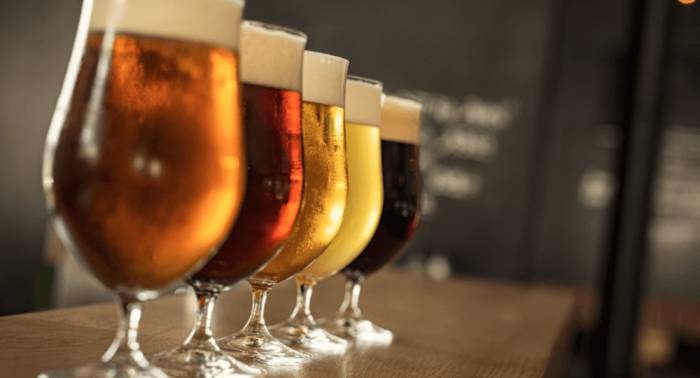Tariffs Could Slash U.S. Beer Consumer Welfare by Up to $306 Million, Study Finds
2025-10-13
Large multinational brewers stand to gain as small craft breweries face shrinking market share and rising costs under new tariffs.

Recent research from the University of Illinois Urbana-Champaign suggests that tariffs could significantly alter the U.S. beer market, with the most notable effects likely benefiting large multinational brewers rather than the country’s nearly 10,000 small, independent craft breweries. The study, led by Aaron Staples, a professor of agribusiness management, examined how tariffs imposed under President Trump’s administration might influence beer production, pricing, and consumer behavior in the United States.
The U.S. beer industry is divided into three main segments: craft beer produced by small businesses, domestic noncraft beer owned by multinational corporations, and imported beer. According to Staples, tariffs can increase the cost of both domestic and imported beer. These higher costs are often passed on to consumers, which can change how Americans buy beer.
The research, published in the journal Food Policy and co-authored by Michael McCullough of California Polytechnic State University, used experimental data from more than 700 U.S. beer drinkers. The findings indicate that while tariffs could encourage more domestic beer production, the benefits would likely be concentrated among large multinational firms. Small craft breweries, which often have less flexibility in their supply chains and smaller economies of scale, could see their market share shrink if they are forced to raise prices more than their larger competitors.
The study also found that higher beer prices caused by tariffs could reduce consumer welfare by between $53.1 million and $306.4 million, depending on the structure and size of the tariffs. While tariffs are not directly paid by consumers, the increased costs for brewers and importers often result in higher retail prices.
Imported beer has become a significant part of the U.S. market, with its share rising from 14% to 24% since 2013. Mexico is the largest source of imported beer, accounting for about 83% of imports. Although Mexican beer was initially exempt from tariffs under the United States-Mexico-Canada Agreement, a 50% tariff now applies to the aluminum content in imported beer. If these costs are passed down the supply chain, American consumers could see higher prices for popular Mexican lagers. Smaller international brands may also stop exporting to the U.S. if tariffs make it unprofitable, reducing the variety of beers available to American drinkers.
In this environment, any increase in domestic beer production due to tariffs would likely benefit multinational companies with the resources to absorb higher costs and adapt their business strategies. Some of these companies have already started investing in new production facilities and marketing their products as “American made” to appeal to national pride.
Tariffs do not only affect imported beer. Many domestic brewers rely on international trade for ingredients and materials such as malt, hops, steel, and aluminum. When tariffs are imposed on these inputs, the cost of producing beer in the U.S. rises. While large companies may be able to absorb some of these costs or negotiate better deals with suppliers, smaller craft brewers often operate on thin profit margins and have less flexibility. This makes them more vulnerable to market disruptions caused by tariffs.
If small breweries struggle or close, there could be broader consequences for local economies, where these businesses often play a key role. Staples noted that the effects of tariffs might not be felt immediately but could become apparent as inventories run out or as brewers can no longer afford to absorb higher costs. Once beer prices rise, they rarely return to previous levels.
The issue of tariffs remains a contentious policy topic in the United States, with ongoing debates about their legality and economic impact. The current situation is fluid and uncertain, but the research points toward higher prices for consumers and a changing landscape in the U.S. beer market.
Founded in 2007, Vinetur® is a registered trademark of VGSC S.L. with a long history in the wine industry.
VGSC, S.L. with VAT number B70255591 is a spanish company legally registered in the Commercial Register of the city of Santiago de Compostela, with registration number: Bulletin 181, Reference 356049 in Volume 13, Page 107, Section 6, Sheet 45028, Entry 2.
Email: contact@vinetur.com
Headquarters and offices located in Vilagarcia de Arousa, Spain.